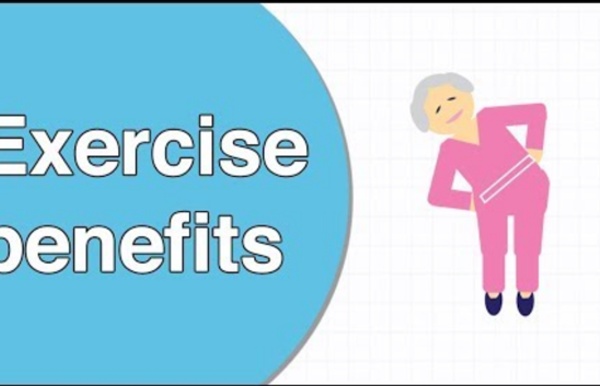



http://www.youtube.com/watch?v=UttzGEilEd8
Related: Maintaining cognitive abilities - Staying active (Older adults) • Effects of Staying Active on Cognitive Abilities in Older Adults • kahwei • Developmental Psychology • Staying active to reduce cognitive decline in older adultsPhysical Activity for Older Adults Significant health benefits are seen in adults aged 65 years and older who participate in regular physical activity. The 2008 Physical Activity Guidelines recommend older adults to incorporate aerobic activity, muscle-strengthening activity, and balance training for older adults at risk for falls. Try to avoid inactivity because some health benefits can occur with any amount of physical activity gain. Older adults need to evaluate their level of fitness before determining their level of effort for physical activity. Want to keep your brain sharp in old age? Go back to school New research shows the brain has the ability to function well — and even excel — in old age. The secret? Keep learning. "Learning is the mechanism for development no matter how old you are," said Rachel Wu, an assistant professor of psychology at the University of California Riverside and the author of research published Wednesday in the Journals of Gerontology, Series B. Wu's study took an ambitious approach: have seniors in their 60s, 70s and 80s immerse themselves in a college-like atmosphere, enrolling in three somewhat rigorous courses simultaneously.
Eight Habits That Improve Cognitive Function The New York Times recently published an article about the "brain fitness" business, "Do Brain Workouts Work? Science Isn’t Sure." I believe the answer is no. The impact of leisure activities on older adults’ cognitive function, physical function, and mental health Abstract Engagement in leisure activities has been claimed to be highly beneficial in the elderly. Practicing such activities is supposed to help older adults to preserve cognitive function, physical function, and mental health, and thus to contribute to successful aging.
How memory and thinking ability change with age Scientists used to think that brain connections developed at a rapid pace in the first few years of life, until you reached your mental peak in your early 20s. Your cognitive abilities would level off at around middle age, and then start to gradually decline. We now know this is not true. Instead, scientists now see the brain as continuously changing and developing across the entire life span. There is no period in life when the brain and its functions just hold steady. Some cognitive functions become weaker with age, while others actually improve.
6 Best Cognitive Games and Activities for Seniors Has a senior loved one struggled to recall the name of an old friend or remember the street that their first house was located on? Little facts like these can be a challenge for seniors to remember as they get older. If someone you love faces memory challenges, don’t worry. There are steps they can take to keep their minds active and improve memory functions. Explore the best activities and cognitive games for seniors that will help their minds stay sharp.
Staying Socially Active May Offset Risk of Cognitive Decline Last month, the big news from the annual Alzheimer's Association International Conference (AAIC) 2019 in Los Angeles was that various lifestyle factors may offset dementia risk. All told, five research studies were presented that focused on specific lifestyle interventions (e.g., regular exercise, healthy diet, smoking cessation, limited alcohol consumption, and cognitive stimulation) that appear to counteract the genetic (and overall) risk for Alzheimer's disease and dementia. The latest research presented at AAIC 2019 suggests that boosting cognitive reserves through lifestyle choices promotes a wide range of neuroprotective benefits associated with a lower risk of dementia.
Physical Activity and Risk of Cognitive Impairment and Dementia in Elderly Persons Context Dementia is common, costly, and highly age related. Little attention has been paid to the identification of modifiable lifestyle habits for its prevention. Objective To explore the association between physical activity and the risk of cognitive impairment and dementia. Design, Setting, and Subjects Data come from a community sample of 9008 randomly selected men and women 65 years or older, who were evaluated in the 1991-1992 Canadian Study of Health and Aging, a prospective cohort study of dementia. Of the 6434 eligible subjects who were cognitively normal at baseline, 4615 completed a 5-year follow-up.